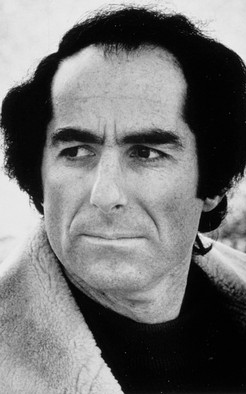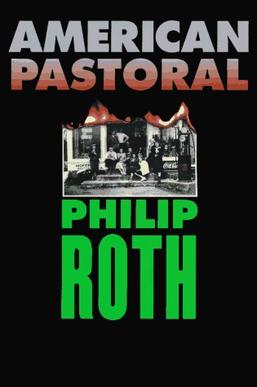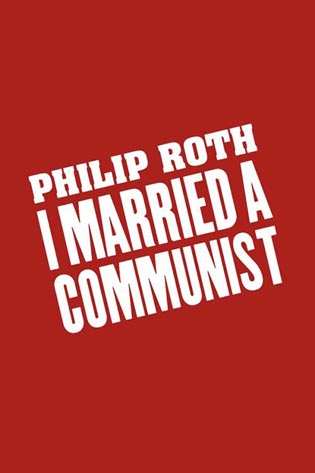Related Research Articles

The Human Stain is a novel by Philip Roth, published May 5, 2000. The book is set in Western Massachusetts in the late 1990s. Its narrator is 65-year-old author Nathan Zuckerman, who appears in several earlier Roth novels, including two books that form a loose trilogy with The Human Stain,American Pastoral (1997) and I Married a Communist (1998). Zuckerman acts largely as an observer as the complex story of the protagonist, Coleman Silk, a retired professor of classics, is slowly revealed.

Philip Milton Roth was an American novelist and short-story writer. Roth's fiction—often set in his birthplace of Newark, New Jersey—is known for its intensely autobiographical character, for philosophically and formally blurring the distinction between reality and fiction, for its "sensual, ingenious style" and for its provocative explorations of American identity. He first gained attention with the 1959 short story collection Goodbye, Columbus, which won the U.S. National Book Award for Fiction. Ten years later, he published the bestseller Portnoy's Complaint. Nathan Zuckerman, Roth's literary alter ego, narrates several of his books. A fictionalized Philip Roth narrates some of his others, such as the alternate history The Plot Against America.

Operation Shylock: A Confession is a 1993 novel by American novelist Philip Roth.

American Pastoral is a Philip Roth fiction novel published in 1997 concerning Seymour "Swede" Levov, a successful Jewish American businessman and former high school star athlete from Newark, New Jersey. Levov's happy and conventional upper middle class life is ruined by the domestic social and political turmoil of the 1960s during the presidency of Lyndon B. Johnson, which in the novel is described as a manifestation of the "indigenous American berserk". It is the first in Roth's American Trilogy, followed by I Married a Communist (1998) and The Human Stain (2000).
Kilgore Trout is a fictional character created by author Kurt Vonnegut (1922-2007). Trout is a notably unsuccessful author of paperback science fiction novels.

Zuckerman Bound is a trilogy of novels by Philip Roth, originally published in 1985.

The Ghost Writer is a 1979 novel by the American author Philip Roth. It is the first of Roth's novels narrated by Nathan Zuckerman, one of the author's putative fictional alter egos, and constitutes the first book in his Zuckerman Bound trilogy. The novel touches on themes common to many Roth works, including identity, the responsibilities of authors to their subjects, and the condition of Jews in America. Parts of the novel are a reprise of The Diary of Anne Frank.

I Married a Communist is a Philip Roth novel concerning the rise and fall of Ira Ringold, known as "Iron Rinn". The story is narrated by Nathan Zuckerman, and is one of a trio of Zuckerman novels Roth wrote in the 1990s depicting the postwar history of Newark, New Jersey and its residents.

My Life as a Man (1974) is American writer Philip Roth's seventh novel.

The Facts: A Novelist's Autobiography is a book by Philip Roth that traces his life from his childhood in Newark, New Jersey to becoming a successful, widely respected novelist. The autobiographical section is bookended by two letters, one from Roth to his fictional alter-ego Nathan Zuckerman, the other from Zuckerman himself, telling Roth what he sees as problems with the book.

Deception is a 1990 novel by Philip Roth. It is a spin-off of Roth’s 1986 novel The Counterlife.
Zuckerman Unbound is a 1981 novel by the American author Philip Roth.

The Anatomy Lesson is a 1983 novel by American author Philip Roth. It is the third novel from Roth to feature Nathan Zuckerman as the main character.

The Counterlife (1986) is a novel by the American author Philip Roth. It is the fourth full-length novel to feature the fictional novelist Nathan Zuckerman. When The Counterlife was published, Zuckerman had most recently appeared in a novella called The Prague Orgy, the epilogue to the omnibus volume Zuckerman Bound.
Autofiction is, in literary criticism, a form of fictionalized autobiography.

Exit Ghost is a 2007 novel by Philip Roth. It is the ninth, and last, novel featuring his character Nathan Zuckerman.

The Prague Orgy (1985) is a novella by Philip Roth. The short book is the epilogue to his trilogy Zuckerman Bound. The story follows Roth's alter ego Nathan Zuckerman, on a journey to Communist Prague in 1976 seeking the unpublished manuscripts of a Yiddish writer. The book, presented as journal entries by Zuckerman, details the struggle of demoralized artists in a totalitarian society.

The Human Stain is a 2003 American drama film directed by Robert Benton. Its screenplay, by Nicholas Meyer, is based on the novel of the same name by Philip Roth. The film stars Anthony Hopkins, Nicole Kidman, Gary Sinise, and Ed Harris.
The Library of America's definitive edition of Philip Roth's collected works (2005–2017) is a series collecting Philip Roth's works. The Library of America's aim is to collect and republish all of Roth's literary output. Originally envisioned as an eight-volume series, the revised plan presents Roth's oeuvre in ten volumes. First published in 2005, ten volumes have been published as of 2017, all edited by Ross Miller, except the last one, by Roth himself.
This is a bibliography of works by and about Philip Roth.
References
- ↑ "Philip Roth's 'Ghost' Returns", NPR, 25 September 2007
- ↑ Metcalf, Steven. "Zuckerman Unbound", Slate, 10 October 2007
- ↑ James, Clive. "Falter Ego", The New York Times, 7 October 2007
- ↑ Patterson, Troy. "Book Review: The Ground Beneath Her Feet", EW, 16 April 1999